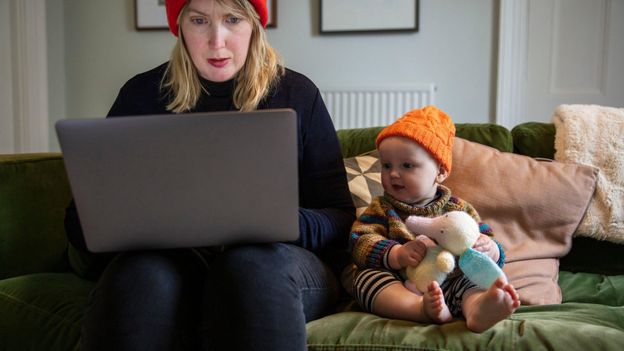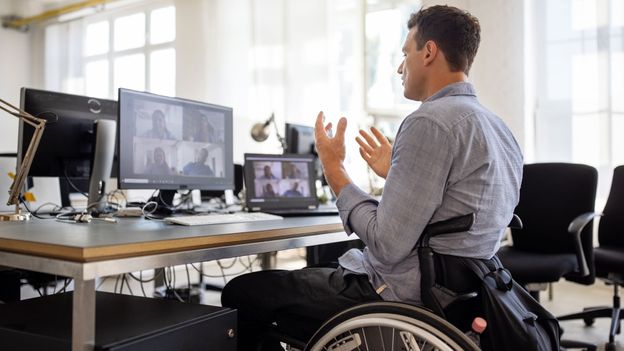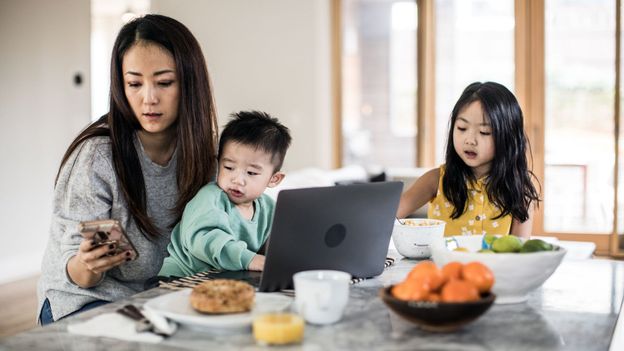Before the pandemic, Gail Cornwall talked mostly about other people’s children, not her own. Cornwall, 40, writes about parenting and education, and always did the majority of her work while her kids were at school. But the pandemic meant all the kids in her blended family – five children between the ages of six and 17 – were suddenly spending all their time at home.
“Only two are back in school even part time now,” says Cornwall, who lives in San Francisco. These days, she finds herself talking about them a lot. She often begins work calls by explaining that she has a house full of kids and that she might get interrupted. “It just feels more professional to have that be anticipated than to just be interrupted out of the blue.”
The pace of her work has changed, too. “When it comes to setting deadlines, I’ve certainly had to pad them more, give myself a longer runway,” she says. “I’ve said things like, ‘I can probably turn this around in two weeks. But let’s say four, just in case, since I have so many kids in the house right now and things come up’.”
Over the last year, many of us have found ourselves wrestling with the unfamiliar need to discuss personal responsibilities while handling professional ones. Before the pandemic, workers had no real obligation to share anything about their lives with their bosses. At larger organisations, HR departments might have known little more than employees’ names, addresses and birthdays. But once Covid-19 abruptly shifted work into our homes, we suddenly had to share more with employers, because our private lives were playing out during working hours.
Some of this has been positive; there’s a sense that giving employers more insight into our home circumstances, responsibilities and even health could result in greater accommodation. But there are also questions about how much we want to share with our employers, and what feels like a breach of privacy – as well as how companies will use the information they learn.
Intrusion or necessary details?
In August, the Forward Institute, a UK-based non-profit group, released a report examining how organisations had responded to Covid-19, including an assessment of what it called the “fundamental shift in what employers know, and need to know, about their employees’ personal circumstances”.












